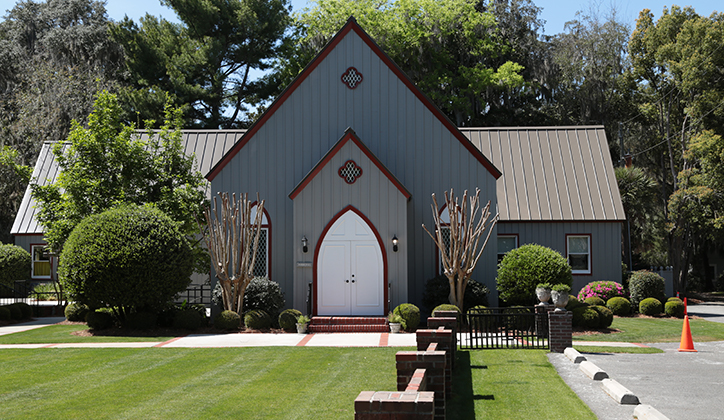“I well remember how I joined the church after my conversion. I forced myself into it by telling the minister, who was lax and slow, after I had called four or five times and could not see him, that I had done my duty. And if he did not see me, I would call a church meeting myself and tell them I believed in Christ, and ask them if they would have me.”
The words are from Charles Spurgeon, the man who would eventually become the Prince of Preachers. The occasion was his attempts to join a local church, a congregation where the pastors vision for new members was, apparently, less zealous than Spurgeon’s.
For the pastor, the young man’s pursuit of church membership was a nuisance. For Spurgeon, it was utterly essential.
Why the passion from Spurgeon at that time on something which can seem so insignificant today?
The Example Set Before Us
In 2 Corinthians 2:5-11, Paul addresses an unforgiving church who is struggling to welcome back a repentant sinner that went through the discipline process. This specific incident involved a divisive leader that was outwardly slandering Paul and his ministry.
It caused division within the congregation.
To make matters worse, the individuals that rushed to Paul’s defense took the assault personally. It led to some pretty ugly stuff – resentment, bitterness and unforgiveness. But beneath the surface of their entrenched unforgiveness, Paul saw a deeper spiritual reality.
Satan could be gaining ground.
If anyone has caused pain, he has caused pain not so much to me but to some degree—not to exaggerate—to all of you. This punishment by the majority is sufficient for that person. As a result, you should instead forgive and comfort him. Otherwise, he may be overwhelmed by excessive grief. Therefore, I urge you to reaffirm your love to him. I wrote for this purpose: to test your character to see if you are obedient in everything. Anyone you forgive, I do too. For what I have forgiven—if I have forgiven anything—it is for your benefit in the presence of Christ, so that we may not be taken advantage of by Satan. For we are not ignorant of his schemes.
Paul targets a couple of concerns. Specifically, he addresses the church’s failure to discipline quickly and their failure to restore quickly. To Paul, the acts of individuals affect the whole congregation. The whole congregation impacts the individual as well.
Interdependence Means We Suffer Together
Beginning with verse 5, Paul tells them that the pain of this situation touched the entire church. What does that mean? Here Paul returns to a doctrine that he’d already taught the Corinthians in his very first letter–the church is an interdependent community.
For just as the body is one and has many members, and all the members of the body, though many, are one body, so it is with Christ… If one member suffers, all suffer together; if one member is honored, all rejoice together. Now you are the body of Christ and individually members of it (1 Cor. 12:12; 26-27 ESV).
While the Corinthians had certainly been taught about the church’s interdependence, this event revealed how it was supposed to apply when people sinned and repented. The church is not a group of detached individuals. We’re interrelated. As a result, the divisive leader’s attack on Paul was an attack on the whole church.
But did the Corinthians see it this way? Not at all. In fact, when this person began trashing Paul, the Corinthians–at first–did nothing! It’s as if they were saying, “Why should I get involved? Don’t hassle me. Hey Paul, this guy is your problem!”
The mission statement on the Corinthian church’s website could have been: Welcome to Corinth, where it’s every man for himself.
Paul’s conclusion was that they’d been outwitted.
So, Paul responds, “Corinthians, here’s how it works: the pain he caused to me, he also caused to you!” He’s saying, “Don’t overlook Satan’s schemes. The devil wants to convince you to act like individuals. But the pain of one affects us all! Being the church means when one part of the Body is attacked, the whole Body feels the pain!”
Parents understands this. When your kids suffer, you suffer as well. If an older brother wins a gold medal, it brings joy to the whole family. If he’s a prodigal, it brings everyone sorrow. The local church is so interconnected that when one is afflicted, we all suffer.
And….when one extends forgiveness, we should all extend forgiveness as well.
Interdependence Means We Restore Together
Now here’s an unexpected twist. Paul, the victim, is now advocating for the guy who trashed him: “Yo, Corinthians, he gets it! In fact, now that he’s been separated from the church community, he might understand our interdependence better than you! Get him back into the family!”
Paul had a concern. To be separated from the church could trigger excessive sorrow for the sinner. Being outside of the community was crushing him. It’s all he can think about. This man needs comfort, Paul says, and you’re offering him bitterness.
Why would Paul advocate so strongly for this divisive man’s restoration? The answer returns us to our opening story where Spurgeon was beating down the church door to become a member. Like the future Prince of Preachers, Paul was deadly serious about local church membership.
Do you ever think about what it really means to be a church member? D. Martin Lloyd Jones once wrote:
“It is our failure as Christian people to understand what our church membership means – the dignity, the privilege, the responsibility – that causes most of our problems” (Christians Unity, p. 206).
The divisive leader had his membership revoked, and, for the first time in his life, he understood what membership means.
Do we? If Paul’s gracious restoration seems excessive, then the answer may be ‘no,’. More importantly, it means we’re at risk of being outwitted by our enemy.
In C. S. Lewis’s classic, The Screwtape Letters, the head demon, Screwtape, gives his trainee, Wormwood, some instruction for how to outwit churchgoing Christians:
“Surely you know that if a man can’t be cured of churchgoing, the next best thing is to send him all over the neighbourhood looking for the church that ‘suits’ him until he becomes a taster or connoisseur of churches… The search for a ‘suitable’ church makes the man a critic where the Enemy [God] wants him to be a pupil.”
Church Hook-Ups
In the entire history of the church, it’s never been easier to simply attend a church—to ‘hook-up’ with the church without ever really committing. In the early church, by contrast, membership involved a sponsor system. Prospective members had to present a witness to vouch for them and hold them responsible. The new member’s class could last up to three years!
Admittedly, early church practices were influenced by their persecution. I’m not suggesting that we go all the way back to those standards. But the comparison illustrates how much they valued membership and meaningful interdependence.
Here’s a question to think about. Are you on the fringes of a church, afraid to commit? Have you been attending for a while but never joined? Make the commitment. Be a part of the body. Exercise the conviction of Spurgeon and join a local church.
Maybe you say, “Dave, you don’t understand. I’ve been hurt by the church.” Maybe I don’t understand, but Paul sure does. Let’s listen to this apostle who had a church leader publicly oppose him while no one in the membership defended him or had his back.
Maybe you’re checking out new churches because your last church disappointed you. I don’t’ want to be the bearer of bad news, but the next one will disappoint you too. Anywhere fallen people gather, disappointment follows. As church families, our goal should not be to deny or ignore it, but to be humble when it erupts and seek to please God in the way we respond.
Seeing the many as one expresses the unity of the church. And according to Paul, in the experience of interdependence, we won’t be outwitted by the enemy.
When one considers the stakes, it’s a little easier to understand why Spurgeon would not be satisfied until he was a member of a local church.












